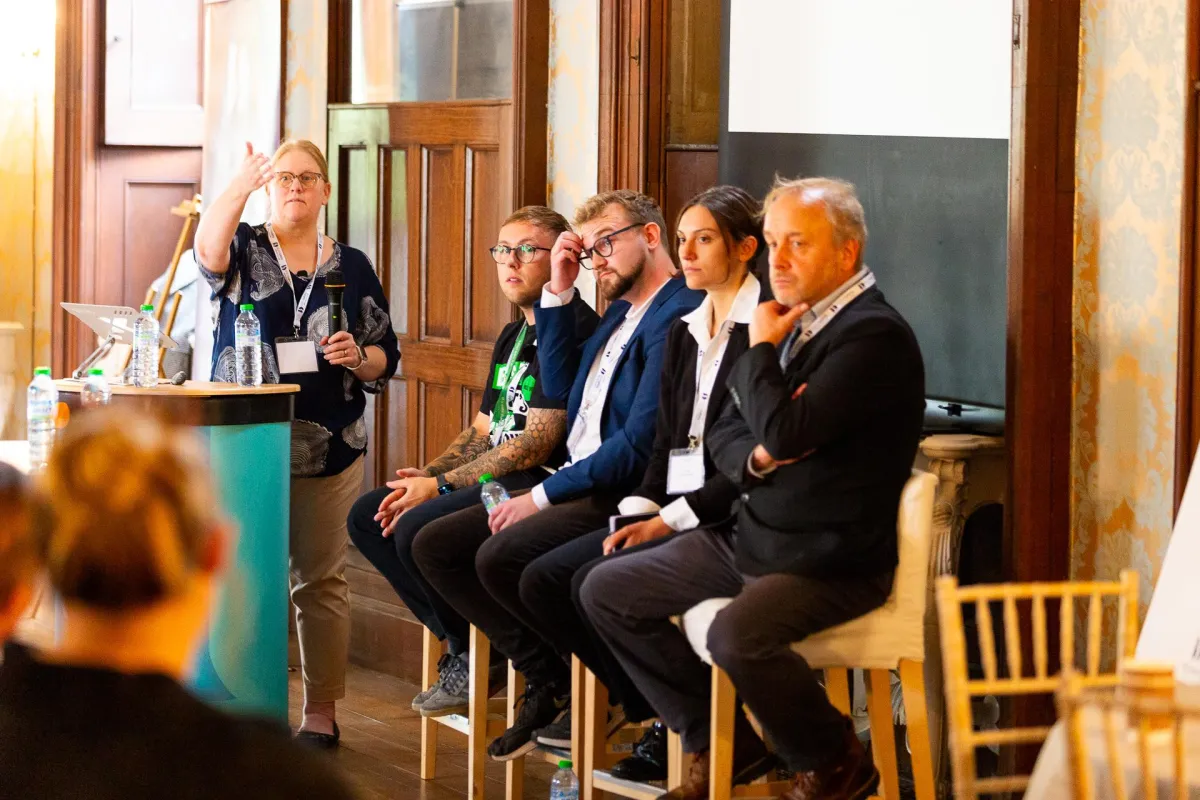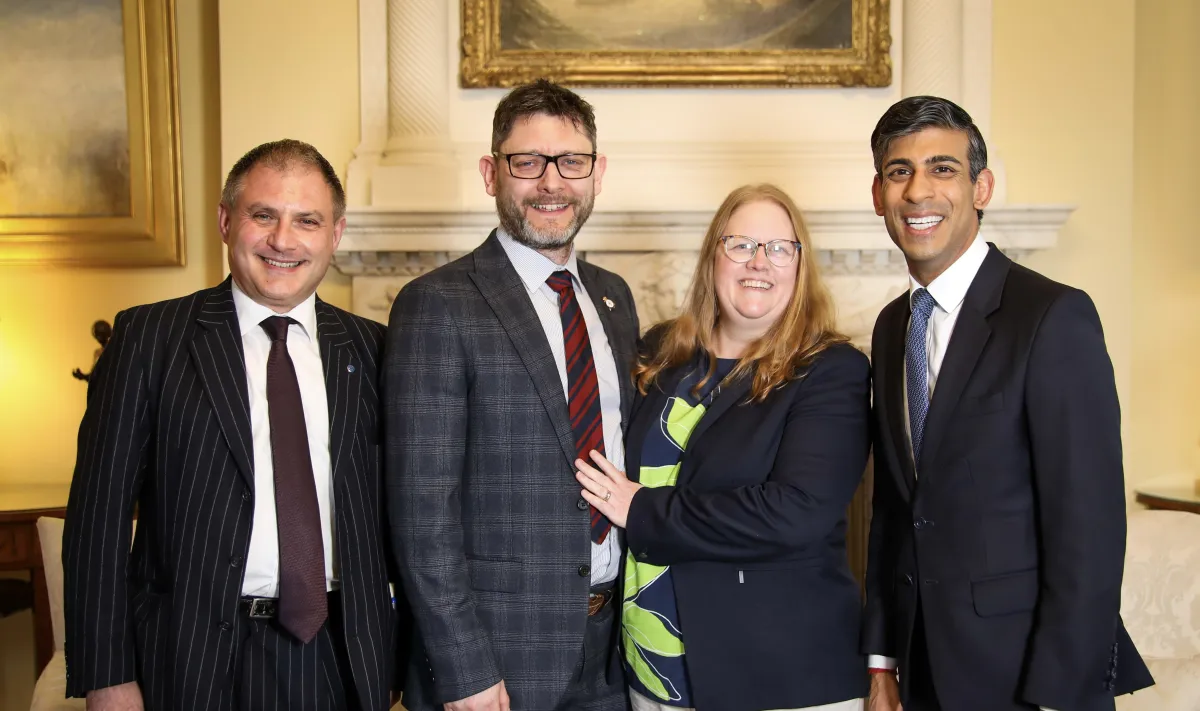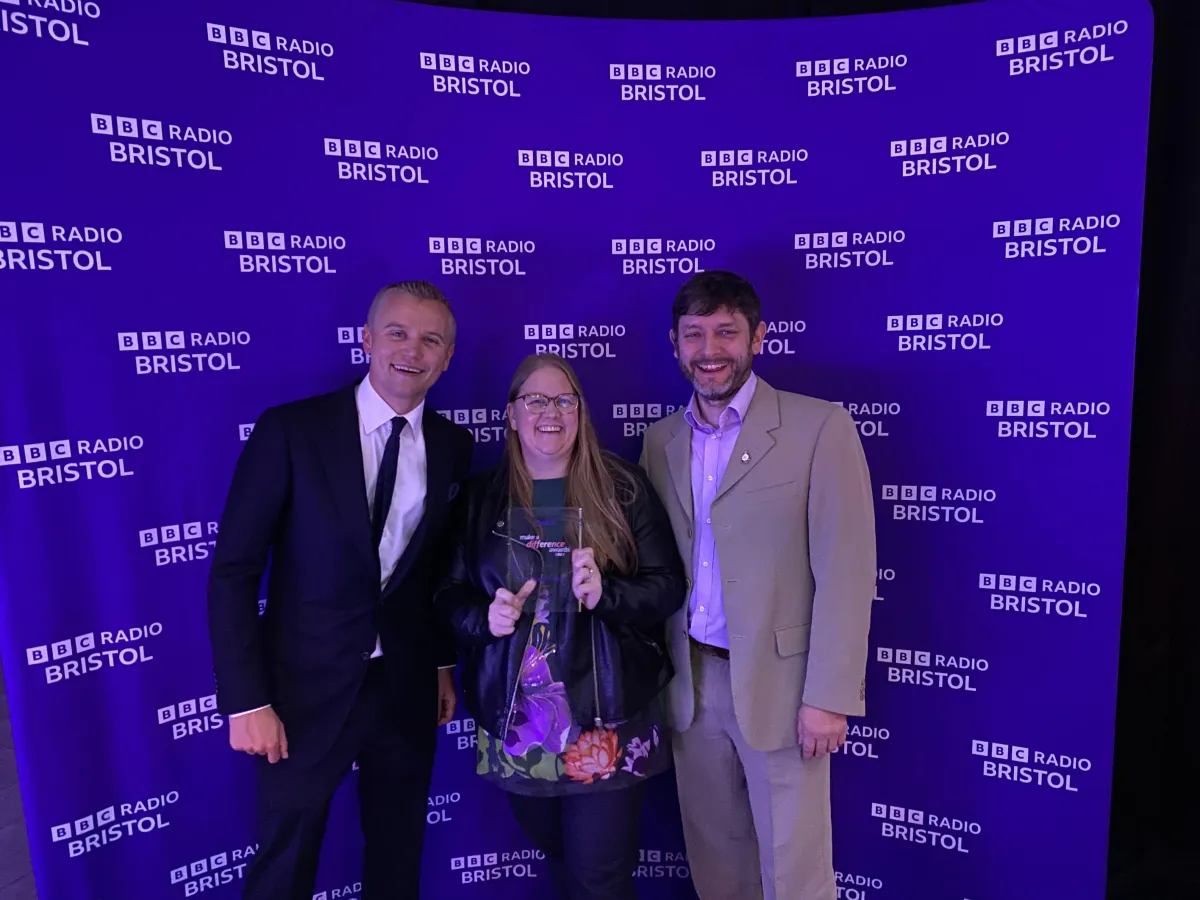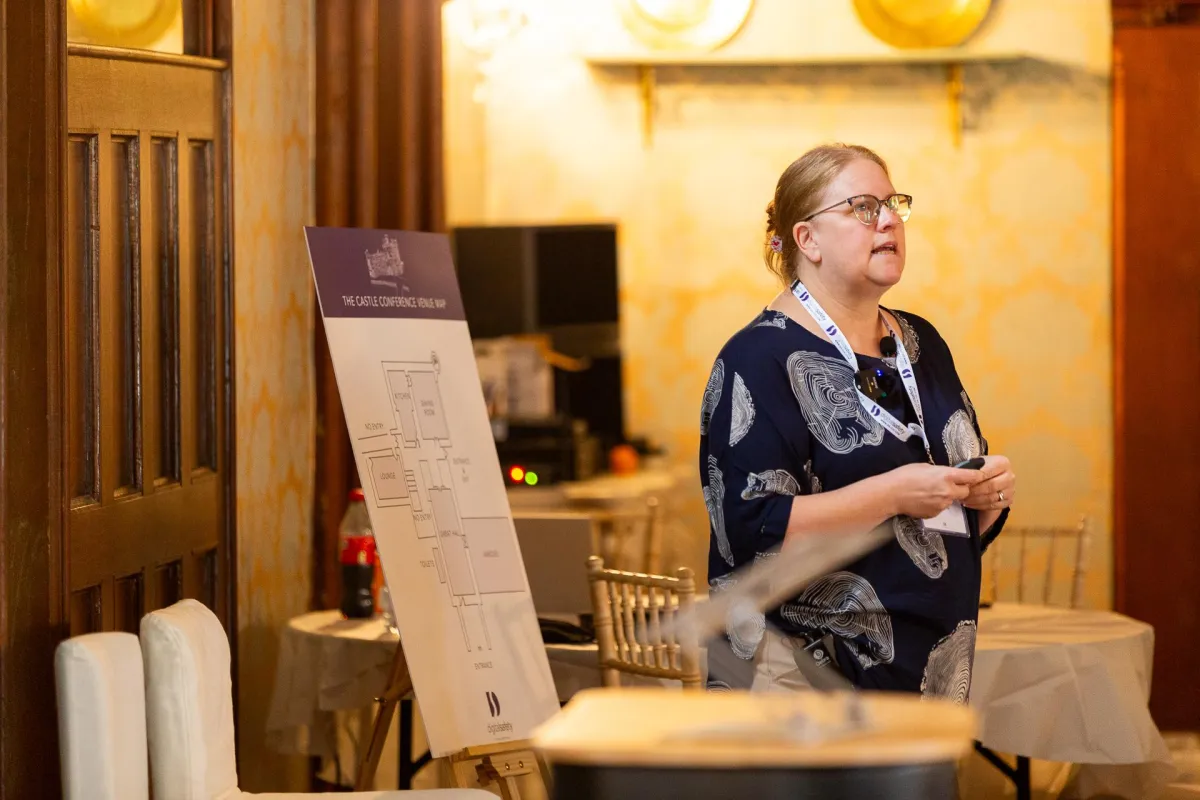
Lucy Smith
Speaker, Facilitator, Compare
Inspiring audiences & making a difference
Neurodiversity | Managing Change | Resilience
Life Stories | Social Enterprise
Authentic storytelling that makes a difference
Hi, I am Lucy!
Some people call me the "pocket rocket". I think that is because I have passion and energy to bring out the best in an audience.
I have been working with audiences for almost 25 years in many guises - Lecturer, radio presenter, drama teacher, children's entertainer (I have been a professional fairy) facilitator, compare and speaker.
As a speaker I believe there has to be some substance behind us and I sure have that too. Not being able to settle and always saying "YES" to opportunities has led to a whole lot of experience that informs my work and my presentations.
At my core I am a purpose led social entrepreneur who loves to start a conversation about topics that matter.
I start those conversations with stories some that will surprise and some that will inspire. I talk about some difficult stuff and combine my unique expertise and knowledge.
Relatable, authentic and thought provoking
Lucy x

Neurodiversity
What is your perspective?
I come from a range of different perspectives when I talk about neurodiversity. From pedagogy, organisation development and leadership, research, personal and family and real lived experience. With a a strengths based approach I talk positively and with passion about change and neurodiversity in work, school and community.
I engage audiences to get them thinking and start conversations that will make and does make a lasting difference.
Change Management
Let me meet you at your
bus-stop
In the world of change management, it's not about imposing a new route; it's about understanding where you're starting from.
I have spent a decade working with senior leaders in transformational change where I have learned that change is often an individual journey and we will all join that journey from a different bus-stop.
I combine theory with reality and always have an eye on the future.
Life Stories
The secret change agent
A wealth of stories based on real lived experience with plenty of lessons for the future. Spilling some my secrets on here would be giving away some of my best work which you will want to hear straight from the source.
Oh, okay, let's just say I can talk about resilience, royalty, and some really fun stuff from a career in international law enforcement,
Social Enterprise
Making a difference - the torch that lights the stars
Lighting people up to make sustainable change happen is a big part of what I do. From setting up a community radio station to developing an innovative and groundbreaking conference around digital wellbeing and young people.
I talk the talk and walk the walk when it comes to social enterprise, from grass roots to engagement at the highest levels right up to Downing Street.
What do other people say?
Don't take it from me, here is what others say about working with me.
Work with me
Want to work with me?
Book a call to work directly with me.
Choose from 60 or 30 minutes.
A chance to talk about your challenges, ask questions, work through a problem.
It's your call and your time.
Listen online
Podcasts, interviews and YouTube
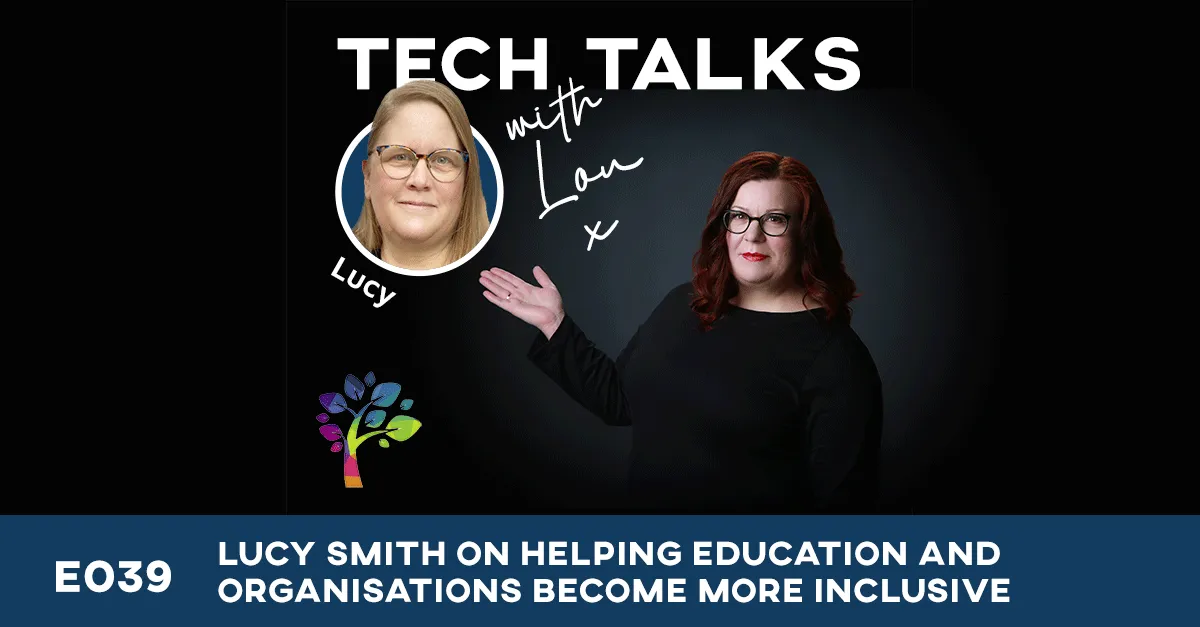
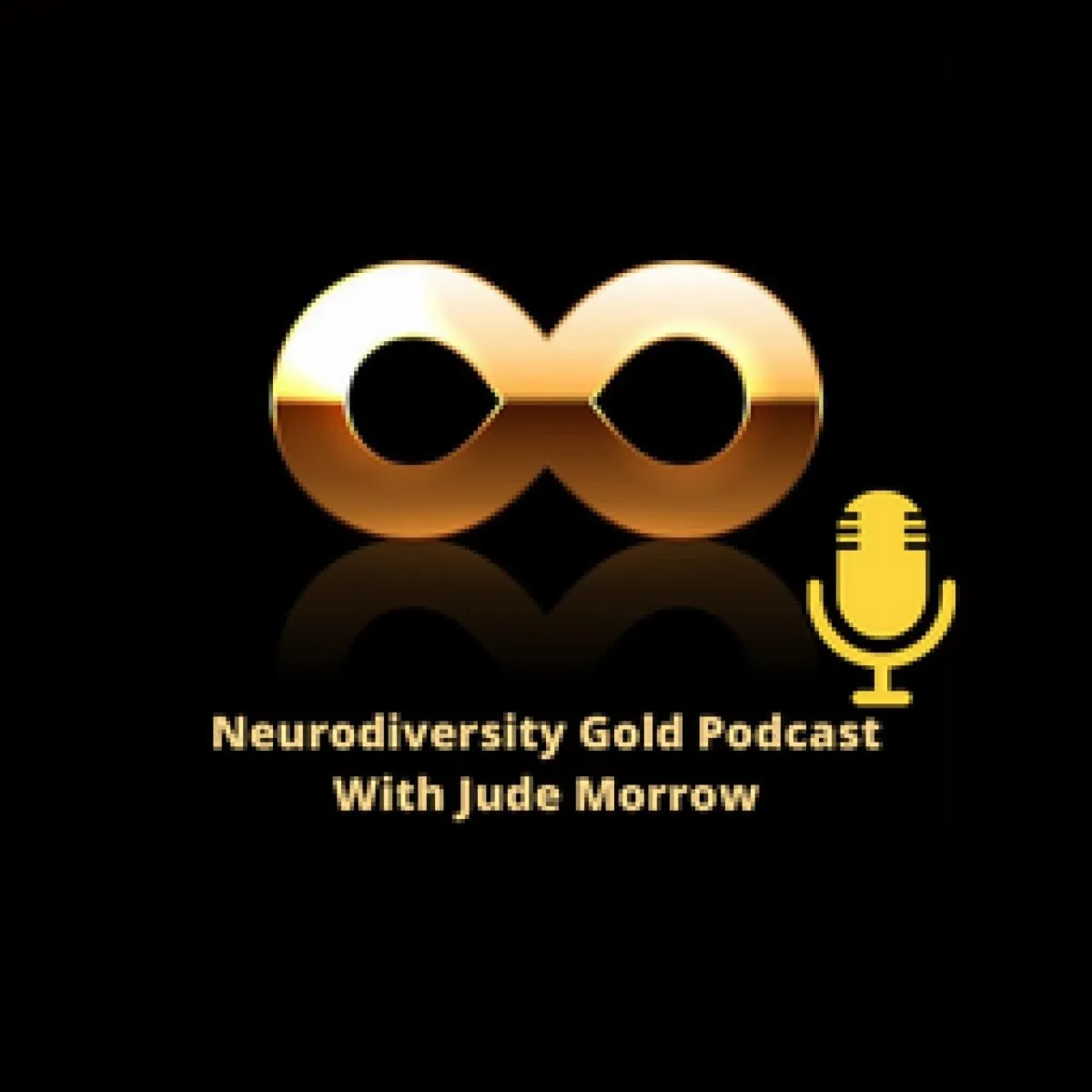
Read more
The blog

Creating Inclusive Teams in Grassroots Sports: A Guide to Supporting Neurodivergent Children
In grassroots sports, inclusivity is more than a goal—it's a responsibility. With around 1 in 7 people being neurodivergent, children with autism, ADHD, dyslexia, or other neurodivergent traits are likely to be part of most sports teams. To make grassroots sports genuinely inclusive, teams need practical guidance and commitment to supporting neurodivergent players. In this guide, we'll explore effective approaches to foster an inclusive environment and provide resources to help coaches and team leaders support neurodivergent children.
Why Inclusivity in Grassroots Sports Matters
Grassroots sports provide opportunities for children to develop confidence, teamwork, and a love of physical activity. However, neurodivergent children can face unique barriers in traditional sports environments, including sensory sensitivities, differences in communication, or challenges with focus. When teams embrace inclusivity, they don’t only comply with legal obligations—they also enrich the experience for all players. Neurodiversity inclusion creates a culture of empathy, adaptability, and resilience, which are values that benefit all team members.
Understanding Neurodiversity in Sports
Neurodiversity is the concept that there is a range of differences in how people think, process information, and experience the world. Some individuals are neurodivergent, meaning they process the world in ways that differ from the "norm." Neurodivergent conditions include autism, ADHD, dyslexia, dyspraxia, and more. These conditions can affect communication, behaviour, focus, and sensory processing, and players may face challenges such as anxiety or struggles with executive function (planning and organisation).
For grassroots sports teams, inclusivity means understanding these needs and ensuring that neurodivergent children can fully participate and enjoy the game. Here’s how teams can foster inclusivity, from creating supportive environments to following best practices for neurodiversity inclusion.
1. Creating a Supportive Environment for Neurodivergent Players
An inclusive sports environment welcomes neurodivergent players and reduces potential stressors that could impact their experience. Simple changes to the setup, rules, and routines can create a more inclusive atmosphere that allows every player to thrive.
Adopt Sensory-Friendly Practices
Reduce Sensory Overload: Be mindful of sensory factors like noise, lighting, and physical proximity, as these can be overwhelming. Coaches can lower noise levels by using visual signals instead of whistles and keeping instructions clear and calm.
Create a Quiet Space: Designate a quiet area on the sidelines where players can go if they feel overwhelmed. This space provides a chance to decompress and re-join the session when ready.
Flexible Clothing Policies: Allow players to adjust their uniforms if needed, such as permitting soft fabrics or loose clothing for those with sensory sensitivities.
Build Structure and Predictability
Routine and Visual Schedules: Many neurodivergent children benefit from structure. Use a visual schedule or a simple outline of the day’s activities, allowing players to anticipate what’s next.
Clear, Step-by-Step Instructions: Give clear, one-step-at-a-time instructions, checking for understanding as you go. Demonstrating tasks can be more effective than verbal explanations alone.
2. Effective Communication Strategies
Effective communication is crucial for creating an inclusive environment. Neurodivergent players may communicate differently or need alternative ways to understand and express themselves.
Use Visual Aids and Cues
Demonstrate, Don’t Just Explain: Show players how to perform tasks rather than relying solely on verbal explanations. Visual aids, like flashcards with simple icons or step-by-step posters, are highly effective for neurodivergent children.
Alternative Communication Options: For children who struggle with verbal communication, consider using nonverbal signals, hand gestures, or even apps that support alternative communication styles.
Parental Involvement and Collaboration
Seek Parental Input: Engage with parents to understand each player’s unique needs and preferences. Parents can often provide valuable insights into what supports their child best.
Regular Check-Ins: Keep parents updated on their child’s progress and any challenges the team encounters. A collaborative approach benefits both the player and the team.
3. Developing an Inclusive Behaviour Management Approach
Inclusive behaviour management acknowledges that neurodivergent players may face challenges with impulse control, emotional regulation, or social interaction. Approaching these behaviours inclusively prevents misunderstandings and ensures neurodivergent children feel valued.
Focus on Positive Reinforcement
Reward Effort, Not Just Results: Recognise individual efforts and improvement, as neurodivergent children often benefit from positive reinforcement. For example, a “great job staying focused on that drill!” reinforces desired behaviours.
Praise Immediately: Neurodivergent children can benefit from immediate feedback, as it helps them connect positive behaviours with reinforcement quickly.
Provide Structured Support for Emotional Regulation
Cool-Down Spaces: Designate a calm area where players can take a break when feeling overwhelmed. This space shouldn’t feel like a punishment but as a place to re-centre.
Set Clear, Consistent Boundaries: Let players know the behaviour expectations and use a clear, visual system for consequences, like a yellow and red card approach, adapted to be supportive rather than punitive.
4. Encouraging Peer Understanding and Support
Inclusivity isn’t just about coaches’ actions—it’s about fostering a positive team culture where everyone feels valued. Educating the team about neurodiversity and setting the expectation that all players support one another strengthens cohesion and empathy.
Age-Appropriate Education
Teach Neurodiversity as a Strength: Introduce age-appropriate information about neurodiversity, highlighting that everyone’s brain works differently, and that this diversity brings value to the team.
Buddy Systems: Pair neurodivergent players with understanding teammates who can offer support or help them follow drills. This buddy approach encourages teamwork and compassion.
Create a Zero-Tolerance Policy for Bullying
Emphasise Respect: Make it clear that disrespectful behaviour toward teammates with different needs is unacceptable. Set a standard for kindness and encourage players to speak up if they see unfair treatment.
Role-Model Inclusive Behaviour: Coaches can lead by example, showing inclusivity in their actions and words. Celebrating small victories for all players reinforces an inclusive environment.
5. Complying with Legal Obligations
In the UK, grassroots sports teams are legally obligated under the Equality Act 2010 to provide reasonable adjustments for neurodivergent players. While this may seem daunting, reasonable adjustments are typically straightforward steps that make sports more accessible. Compliance not only avoids legal risk but strengthens a team’s reputation as a community-minded, supportive group.
Implement a Reasonable Adjustments Policy
Document Adjustments: Keep a record of any adjustments made, such as changes to communication methods, sensory accommodations, or flexible routines. Documentation provides evidence of your team’s commitment to inclusivity.
Educate Staff: Ensure that coaches and volunteers are aware of their responsibilities and trained in neurodiversity-friendly practices. Regular training on inclusivity is an investment that enhances the experience for all players.
Building a Neuroinclusive Culture: Practical Tips for Grassroots Teams
1. Ongoing Training: Commit to regular training for coaches and staff on neurodiversity and inclusion. This builds understanding and provides coaches with strategies to support neurodivergent players.
2. Review Policies Annually: Ensure your team’s policies are up-to-date and reflect best practices in inclusivity. Seek feedback from neurodivergent players, parents, and coaches to inform improvements.
3. Encourage Family Feedback: Families know their children best. By inviting parents’ input and listening to their advice, teams can create a more personalised, supportive experience for neurodivergent players.
4. Partner with Neurodiversity Organisations: Collaborate with local organisations that specialise in neurodiversity, such as the National Autistic Society or ADHD Foundation, for additional resources, guidance, and support.
Moving Towards Inclusive Grassroots Sports
Creating an inclusive grassroots sports team takes commitment, empathy, and an openness to adapting traditional practices. Neurodivergent children bring unique strengths to sports, and with a few adjustments, every child can have the chance to thrive on the field. By fostering an inclusive environment, teams not only support neurodivergent players—they also build a stronger, more compassionate community.
Let’s make grassroots sports a space where every child can play, grow, and belong.
Ready to Take the Next Step in Inclusive Coaching?
Creating a truly inclusive team goes beyond simple adjustments—it’s about fostering a culture that celebrates every player’s unique strengths. If you’re ready to equip your team with the skills and understanding needed to support neurodivergent players, we’re here to help.
At Inclusive Change, we offer specialised training for grassroots sports coaches and organisations, providing practical strategies and tailored guidance on neurodiversity inclusion. Let’s work together to create an environment where every child can thrive.
Contact us today to learn more about our training programmes and find out how your team can lead the way in inclusive, neurodiverse-friendly sports.
Some of the Companies Inclusive Change Have Worked With


Inclusive Change Ltd
The Brightwell, Bradbury House
Wheatfield Drive
Bradley Stoke, Bristol
BS329DB
Reg no: 12412464
Copyright 2023 - Inclusive Change Ltd
VAT NO: 352 1564 17
ICO Reg: ZB081779
UK Register of Learning Providers: 10090652
Column Header
Lorem ipsum dolor sit amet consecetuer lorem ipsum
Organically grow the holistic world view of disruptive innovation
At the end of the day, going forward, a new normal that has evolved
Column Header
Lorem ipsum dolor sit amet consecetuer lorem ipsum
Organically grow the holistic world view of disruptive innovation
At the end of the day, going forward, a new normal that has evolved
Column Header
Lorem ipsum dolor sit amet consecetuer lorem ipsum
Organically grow the holistic world view of disruptive innovation
At the end of the day, going forward, a new normal that has evolved






